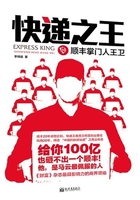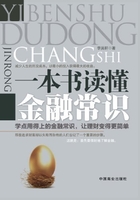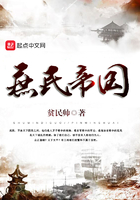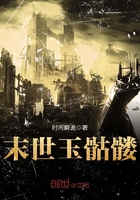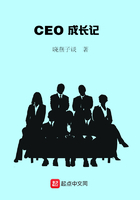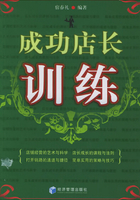I started at Microsoft, as Tina said, almost 30 years ago. I thought I would give you my“entrepreneurial story.”That’s me when I left Stanford. I still part my hair, by the way, on the right, just like I did back then. I did meet Bill Gates at Harvard, and our sophomore year at school we lived down the hall from each other. And his friend from high school, they had started actually a company when they were in high school that did software that processed traffic tape. I don‘t know if you notice when you drive down the road you sometimes see these rubber tubes across the road. Well, it turns out in the old days when you drive over one of those, it would punch holes in a paper tape in a box at the side of the road. And you would have to ship them back to Maryland. And Bill and Paul said, gee, let’s buy one of these new Intel microprocessors. At the time it was something called the Intel 4004, just to show you how olden days that was, and they started a business processing these tapes for cities in the State of Washington.
And then Bill came to Harvard, and they still loved microprocessors, and Paul Allen wanted to build a company to build computers with microprocessors. And somehow even then Bill kind of said, no. I know what we‘re good at, Paul, we’re software guys. Let‘s not do that. And then, finally, when our sophomore year in college, the cover of Popular Electronics magazine, there was a picture of the first microprocessor-based computer, something called the Altair. And Bill and Paul decided to“write all the software the machine would ever need”.
Of course, they didn’t, but they wrote some important software for the machine, and the company got started and was kind of purring along with 30 people when I joined. There were no business people. It was all programmers when I joined the company in 1980. I came in to“be a business person”, whatever that meant. I didn‘t know much. Frankly, all I’d ever really done was interview for jobs, and market brownie mix. I wasn‘t exactly well-credentialed. I’d taken the first year in Stanford Business School, so I could read a balance sheet. That was really important. We didn‘t have that much money back then, so there wasn’t much to read. But, anyway, those lessons were important.
And then from there, we kind of just kept grinding and grinding, a few bits of inspiration, a lot of perspiration. I just spent an hour with a group of venture capitalists, and they said, hey, look, if you‘re going to tell entrepreneurs-I said, I’m going to go talk to some entrepreneurs-what would be your lessons from the early days? They were simple. Hire good people. We actually didn‘t have very good people when I started. Bill was good. There were like four or five very good people, and I went into Bill’s office after I‘d been there a month or so, and I said, we’ve got to hire 18 more people on top of the 30 that we had. He said, Steve, our people aren‘t even very good. Why do you want to hire 18 more? And you’re going to bankrupt us, go back to Stanford or something, but don‘t stay here unless you’re going todo better than that. And so we just really worked hard at getting good people, smart people.
Tina was joking around, look around at the people you know. The people you know, at least in my case, they wound up being super important. The initial programmers at Microsoft were people who grew up with Bill. We brought in people we knew from college, because those are the people you know and you trust if you start something. With good people, and then a lot of patience. I think a lot of entrepreneurs think that things happen quickly. Success is 90 percent inspiration, 10 percent perspiration. It‘s much more balanced than that. It’s great idea, a lot of hard work, and then you work at it for a year, two years, three years, four years, five years, six years, seven years, eight, nine, ten. Some things that actually wind up being really important take more than ten years to get popular.
You wouldn‘t believe it reading the popular press, but it’s really true. It‘s really true. It’s true with Windows. It‘s true with SQL databases, for guys like Oracle. The Google guys were at it for a number of years before that thing really took off. There’s a few exceptions, but most things you‘ve got to really grind up. And certainly that was kind of the history of Microsoft in the early days.
We had some products. We were a tiny company. My parents thought I’d lost my mind to drop out of Stanford Business School to go join some company that made software. You know, I said, software for personal computers, mom, dad, that‘s why I’m leaving the hallowed halls of Stanford. And my dad said, what the heck is software? And my mother said, why the heck would a person need a computer? Well, we‘re talking about 1980, and life was a little different in 1980. But it’s those kinds of questions that-there‘s a little bit of spark, there’s a little bit of a powerful force, and then there‘s just a lot of hard work to get from here to there.
You know, if you say today, OK, is all the good stuff in the days gone by? This is one of the questions I get a lot from people who are just starting out who say, wow, technology has changed so much in the last five years, 10 years, 15 years, 20 years. Are all of the great companies created? The answer is no, not even at all. The truth of the matter is, if you look at the technology industry there’s always a few big guys, some medium-sized guys, and lots of small guys, and the names are always changing, because the industry is so darned dynamic. And there‘s so much new stuff being invented. The way chips work is changing completely as we speak. You’re able to get bigger, and bigger displays at cheaper and cheaper prices.

